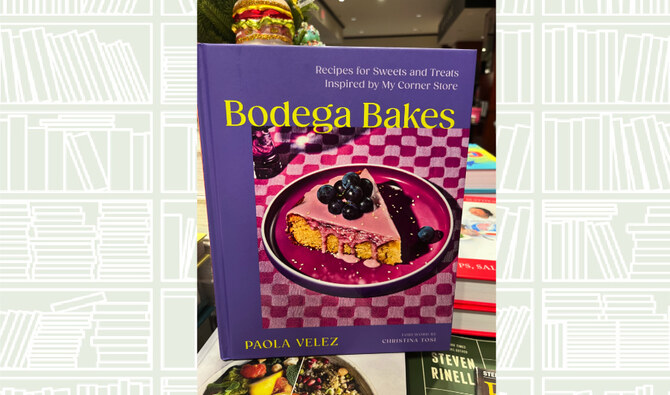Author: Paola Velez
James Beard nominated chef Paola Velez’s delicious debut cookbook, “Bodega Bakes: Recipes for Sweets and Treats Inspired by My Corner Store,” is a heartfelt tribute to her Dominican and Puerto Rican heritage, infused with the spirit of the Bronx in New York City where she was raised.
Published in October, it has quickly garnered attention as a must-have baking book, blending Velez’s vibrant storytelling style with inventive recipes inspired by her upbringing.
A bodega, as Velez describes it, is more than just a small neighborhood convenience store; it is a lively community hub — with stacks of snacks, essentials like headache medicine, chocolate and shampoo, and usually, a sleepy resident bodega cat.
She writes: “Bodegas are the heart of so many communities, and they’ve given me some of my most joyful memories — this book is my way of sharing that joy with the world.”
Bodegas in New York include a deli counter within the crammed premises, where freshly made sandwiches are made to order at affordable prices. Bodegas became the foundation for Velez’s culinary creativity, transforming humble cornerstore finds into extraordinary desserts.
The book features over 100 recipes, from her signature “thick’ems” cookies to Maria cookie icebox cake and pineapple empanadillas. It is a book bursting with personality and flavor.
Velez skillfully combines nostalgia with accessibility, ensuring that home bakers of all levels can recreate her inventive treats in their own homes. Everything you need to bake can be purchased at your favorite local bodega.
Cristina Tosi, the culinary celebrity and founder of a New York cult favorite, Milk Bar, wrote the foreword, calling the book: “a love letter — to her heritage, to her corner store, and to anyone who’s ever found magic in the simplest of ingredients.”
Beyond her culinary achievements, Velez is also a co-founder of Bakers Against Racism, a global initiative that raised millions for social justice causes through bake sales. She uses food not only to feed stomachs, but the spirit.
With “Bodega Bakes,” Velez elevates everyday ingredients and each page — and bite — is steeped in cultural storytelling.
























